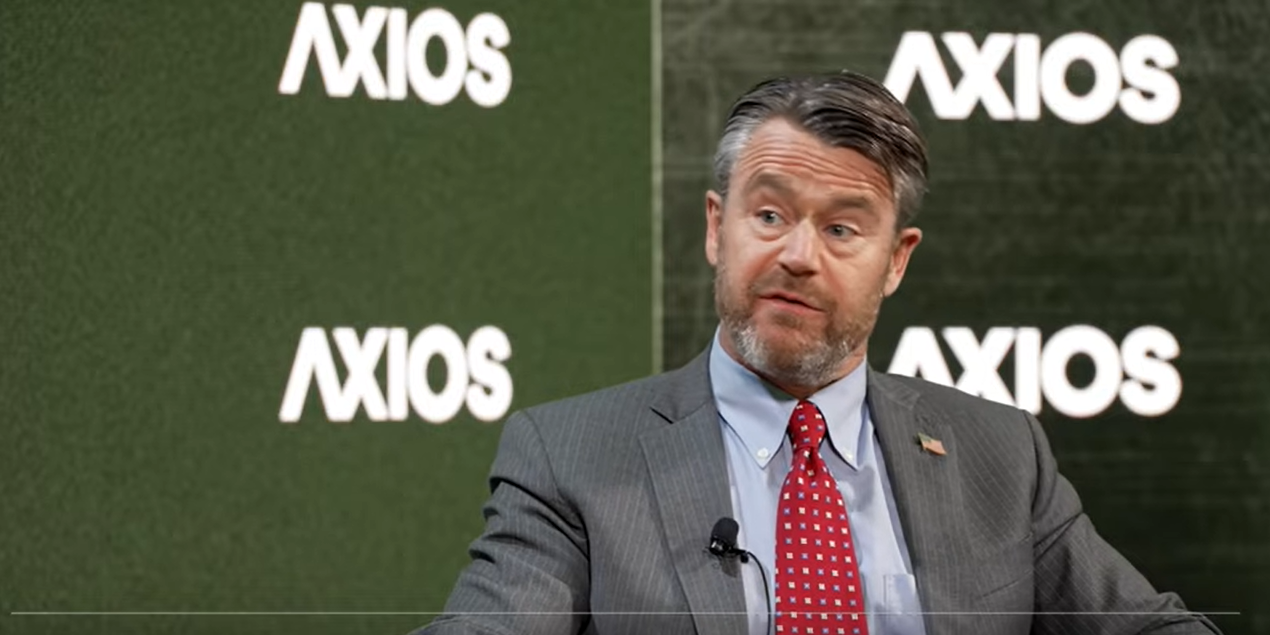Discussing ongoing U.S. strikes against alleged drug smugglers, Sen. Todd Young (R-Ind.) called for lawmakers to assert congressional authority over when the U.S. uses armed force — and work to bring unauthorized conflicts to a close altogether.
At today’s Axios Future of Defense Summit, Sen. Young complained the Trump administration was not giving lawmakers enough information about its ongoing offensive against so-called “narco-terrorists,” in the Caribbean sea near Venezuela (though Secretary of Defense Hegseth said that the military had struck a suspected drug carrying vessel in the “East Pacific” on Tuesday. It was the eighth vessel struck since September in the ongoing campaign.)
“Congress isn't hearing enough [about the attacks] in any form, including a public forum. I think legal rationales behind these issues should be openly discussed and re-discussed on an ongoing basis,” he said. To address this lack of information, Sen. Young called for the Foreign Relations Committee to hold oversight hearings on the strikes.
But Sen. Young wanted to challenge such unauthorized conflicts altogether. “I think Congress needs to go further. Rather than just asserting our ability to authorize military force [as lawmakers] — we also need to officially bring to close these conflicts, and make clear that we have constitutional prerogatives that need to be consistently asserted,” he said.
To this end, the Senator, who sits on the Senate Intelligence Committee, also stressed his support for repealing Authorizations for Use of Military Force (AUMFs), namely the 2002 AUMF and the 1991 Gulf War AUMF.
“I’ve worked with Senator Kaine on efforts to repeal the 2002 ‘zombie’ AUMF, which could have been used for other purposes…[and] to repeal the first Gulf War AUMF,” he said.
The Trump administration argues that this "non-international armed conflict" is legal because it deems the smugglers terrorists. Lawmakers have repeatedly challenged that assertion.
Sen. Young’s statements follow ongoing legislative efforts to challenge the Trump administration’s campaign against so-called narco-terrorists in the Caribbean, where President Trump also recently floated the possibility of attacking Venezuela itself.
Sen. Tim Kaine (D.-Va.) has sponsored a War Powers Resolution to bar the use of armed force against or within Venezuela, unless “explicitly authorized by Congress”; he and resolution co-sponsors Sen. Rand Paul (R.-Ky) and Sen. Adam Schiff (D-Calif), plan to force a vote on it in the near future.
A previous War Powers Resolution sponsored by Schiff and Kaine to block the president from using force against alleged drug smuggling without explicit congressional approval, failed early this month. It was rejected in committee largely along party lines, where Democrats mostly supported the resolution, and Republicans mostly rejected it.
















